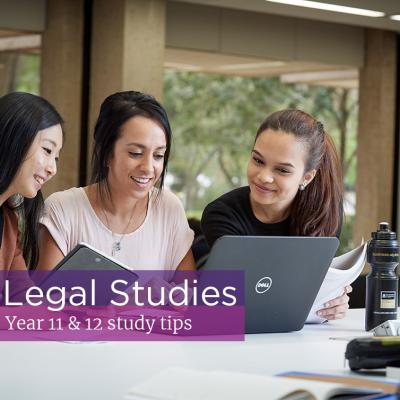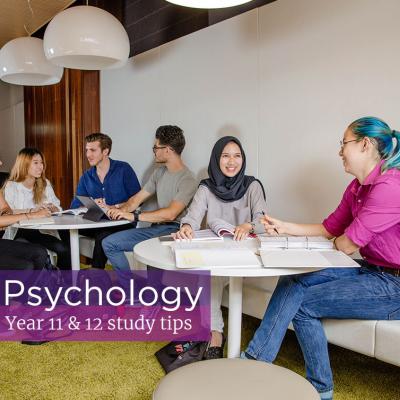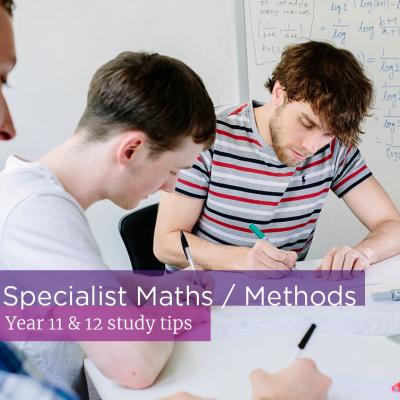English is one of those subjects you have to do in high school no matter what, and – let's be honest here – if it doesn’t interest you, it can be a bit of a drag.
But as is the case with anything you need to soldier through, it’s best to go in with a positive outlook and a proactive approach.
Whether you love studying Shakespeare or loath it, you’re a diehard Austen fan or wish Cher Horowitz could replace Emma Woodhouse forever, you’ll still have to figure out how to study for English. The good news is, we’re here to help.
Get ready for some real talk and solid tips from UQ student and former Year 12 English study buddy, Penelope Spears. She was in your shoes not so long ago and has generously shared a few pearls of wisdom on how to study for ATAR English. Keep reading, because her advice might not be what you expect.
In this article, we’re outlining the best study tips for senior school English. We’ll be dropping study tips for Literature (similar to English Extension in other Australian states) soon – so keep your eyes peeled. 👀
How to do well in grade 12 English
Is English compulsory in Year 12? Yes.
Does that mean you should sludge through it with all the enthusiasm of a wet rag? No.
Take it from someone who thought Shakespeare was a bit of a bore, and who didn’t enjoy the novel their exam was based on. Penelope took English in her stride, despite these setbacks, graduated with a 99.9 ATAR and is now studying a Bachelor of Engineering (Honours) / Bachelor of Economics at UQ. You can achieve this too with a positive outlook, a dash of determination and a commitment to study.
“Don’t go into senior English thinking it will be bad; try and make the most of it,” says Penelope.
“There are many opportunities in English to write about what you enjoy. Of course, you will have to read books and poetry occasionally, but there’s even opportunities to write about subjects you enjoy within the context of the book.”
It’s about finding a way to make it interesting to you. This could mean looking for literary devices in films, TV shows and even song lyrics that you like or choosing related texts that really interest you to compare and discuss in your analyses.
In English, you won’t just be studying novels, either. The syllabus accommodates everything from graphic novels to plays, blogs and famous speeches. Of course, what you study will depend on what your teacher chooses to focus on, but there’s a myriad of ways you can take a topic or lesson and re-frame it in a way that makes sense to you. We bet if you can show your teacher or tutor that you’re trying to connect with the lesson in a meaningful way, they’ll help you relate it to something you’re more interested in to improve your understanding.
So, when it comes down to it, if you want to do well in Year 12 English, you need to find ways to personally engage with the topics and texts covered in your lessons. Here are a few tips on how to do just that.
How to study for English
So let’s get the big S out of the way first. Chances are, you’re going to do some Shakespeare in Years 10, 11 and 12 of high school. And you may not like it.
The Bard himself may certainly be famous, but his works often leave a lot of high school English students scratching their heads and looking for some kind of easy translation. Well, you’re in luck, because it exists, and it’s called SparkNotes. In fact, most online and physical study guides focusing on Shakespearean works will offer some kind of modern translation to help you understand what the whole thing is about. And if you’re still yawning your way through one of his plays, the beauty of studying a text so famous is that there are literally hundreds of adaptations of Shakespeare’s works.
Take Macbeth, for example – it has over 7 film and television adaptations alone. Instead of struggling through the play, you could try watching the modernised TV series, Scotland, PA (2001) to get a better understanding of the general themes of the text.
As Penelope explains, however, that isn’t to say you should ignore the original text altogether. It’s about supplementing the texts you find boring or uninteresting with versions you can engage with.
When Penelope found herself struggling with her prescribed texts, she looked for other ways to better understand them.
“I found myself reading lots of articles talking about current affairs and reading analyses of texts on SparkNotes,” says Penelope.
If you find yourself reading the same sentence of something like Macbeth, Pride and Prejudice, The Great Gatsby or another prescribed text over and over without taking anything in, it’s worth looking to alternate versions or interpretations to better engage with it and understand it.
You might like to check out:
- Baz Luhrmann’s 2013 film adaptation of The Great Gatsby
- Bollywood hit movie Bride and Prejudice
- Pride and Prejudice and Zombies, the book and film adaptations (for something completely unexpected and a little bit ridiculous)
- Pride, the 2019 novel by Ibi Zoboi
Penelope’s last word on England’s most-loved poet?
“Shakespeare is always a bit of a bore, but watching the films of some of his works is always helpful and keeps you entertained!”
Thanks for keeping it real, Penelope. ✌️
How to study for an English exam
Studying for your English exam does incorporate the tips above, but it also requires some specific preparation. You need a plan for your end of high school English test, and you need to go in with a few clear arguments up your sleeve. Most importantly, you need to know your prescribed text like the back of your hand.
Here are a few solid study tips to help you prep for your final English exam:
- Read your prescribed text, read study guides on it, watch a movie version of it, and listen to the audiobook – get as well acquainted with it as possible.
- Memorise a couple of key quotes from your prescribed text that relate to several arguments or themes from past papers.
- Ensure you read up on the author of your prescribed text and the cultural and social context of the times in which they wrote.
- Do practice papers and have someone else read your responses for you and give you feedback.
- Practise your handwriting – get into the habit of writing your study notes instead of typing them.
Wondering how to study for an English essay? This is a vital component of your final exam. Our top tip for studying for English essays to be completed in exam conditions is to practise outlining an essay structure in 15 minutes. In your final exam, you’ll have 15 minutes of planning time and 2 hours of writing time. It can be tempting to jump right in and start writing your introduction straight away, but using that quarter of an hour to outline an essay structure is essential. Having a structure for your essay will help you stay focused when writing, instead of going off on tangents, which could cost you marks.
Why high school English is important
What’s the big deal about learning English in high school? Why is it mandatory, when a whole heap of other subjects aren’t? Well, it all comes down to communication.
“English isn’t everyone, but you do need it!” says Penelope.
“One thing that kept me going was that I knew I needed to learn how to communicate. English can seem pointless when you are reading Shakespeare and writing short stories, but it teaches you how to talk to and communicate effectively with the people around you – this is a skill everyone needs!”
From job interviews to visa applications, when ordering at a restaurant to when you get called up for jury duty, you need to be able to communicate confidently and clearly. High school English teaches you how to do just that.
If that’s not enough to get you through Years 11 and 12, Penelope has one last motivator to share.
“What got me through was knowing that it would soon all be over and that I might as well finish English on a good mark.”
And that she did.
So, get motivated, get organised and think towards your future – because ATAR English will help you get there.
For advice on doing your best in all your subjects – and more great study tips from Penelope – read How to get a high ATAR. Or explore study guides for your other subjects.






